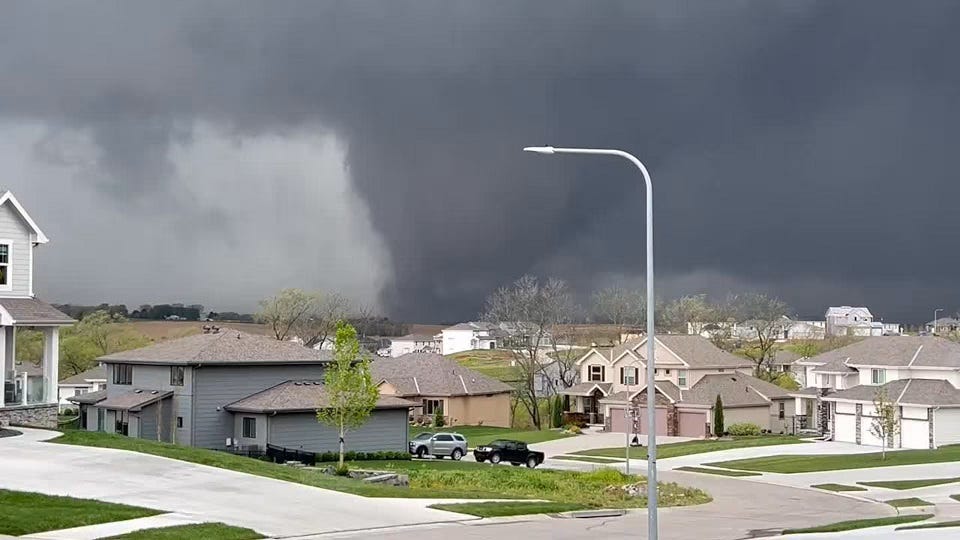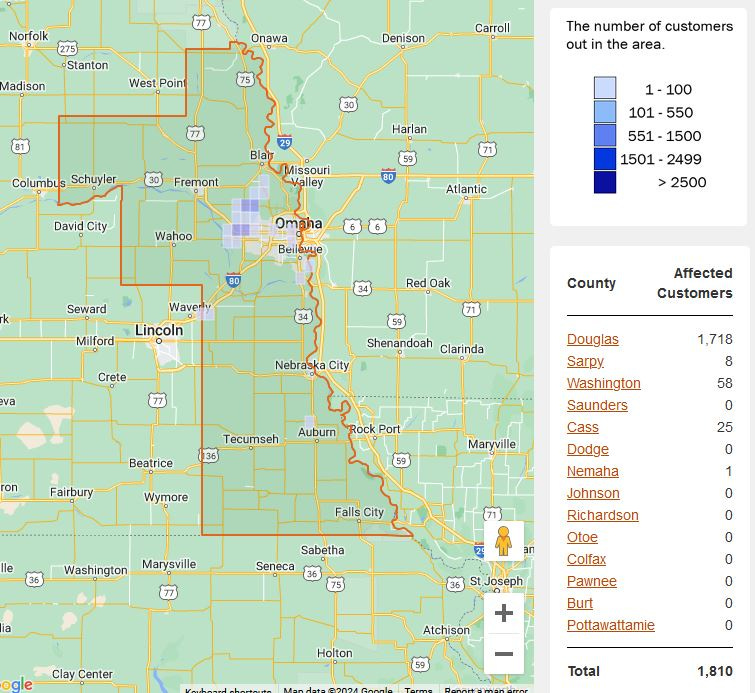On April 26, 2024, at 3:13 PM, alerts hit mobile phones across the Omaha area as tornadoes had been spotted. Two hours later, parts of Greater Omaha and the midwest had been ruined by the most dangerous greenhouse gas, water vapor! Oh, do not bother me about the supposed dangers of CO2! That is mere plant food. Take a look at what happens when water vapor gets angry! TORNADO! RUN FOR YOUR LIVES! (while I take a selfie in front of the tornado)
Fortunately, nobody was killed by a tornado this day. The humble peoples of the Midwest will gather together to assist each other and ponder the forces of God’s creation.
The physical ruins of houses, cars, and trees are obvious. What is not well seen is the damage to the local digital economy. Right now, as I write this, over 1,700 households are without power in Douglas County where Omaha is located. This impacts many who work from home and need the internet, as well as for other business. At the same time, homeowners and some stores will have to quickly dispense measures to save refrigerated and frozen foods or worse, throw them out.
If you lived with regular power outages before, you probably know to eat the ice cream first and drink the milk instead of the pop, beating spoilage as best you can.
At the same time, Cox Internet and other internet companies are also having issues, but the public has no idea how far the outage goes. There are online reporting mechanisms but they are not reliable. Many more people would work from home but already know how unreliable Cox is. Those who do work from home are losing pay because they cannot connect to the internet, let alone report the problem. Many Cox users have become apathetic to the problem, and therefore do not report the problems. The problem is just as bad with other internet providers such as CenturyLink. Also, how many people are ordering an item online from a local store, only to discover the store has no power or internet, and has not received their order?
Also, OPPD and Cox are apparently unaware of the problematic interaction of their services. Occasionally, OPPD power will be disrupted for a second by a “pop” phenomenon where the power is temporarily interrupted. I am uncertain if this is caused by condensation reaching the power wires or animals biting into the wires or what, but it is exceedingly temporary yet it will knock you off the internet forcing you to reconnect again. This causes me to wonder just how well-protected is the power grid as well as the internet.
At the same time, what did work was a vast network of cell towers allowing all those mobile phones to receive weather alerts. Interestingly enough, early in the morning, before the tornadoes arrived, Omaha discovered two warning sirens were not functioning (https://www.msn.com/en-us/weather/other/two-douglas-county-outdoor-warning-sirens-not-operating/ar-AA1nISOP). This part of the digital economy likely saved many lives, resulting in no deaths from these torrent winds.
Yet, Omaha needs to have a plan to foster the local digital economy and bring these entities together to provide greater transparency and protect the power grid. Right now, there is no apparent plan.





